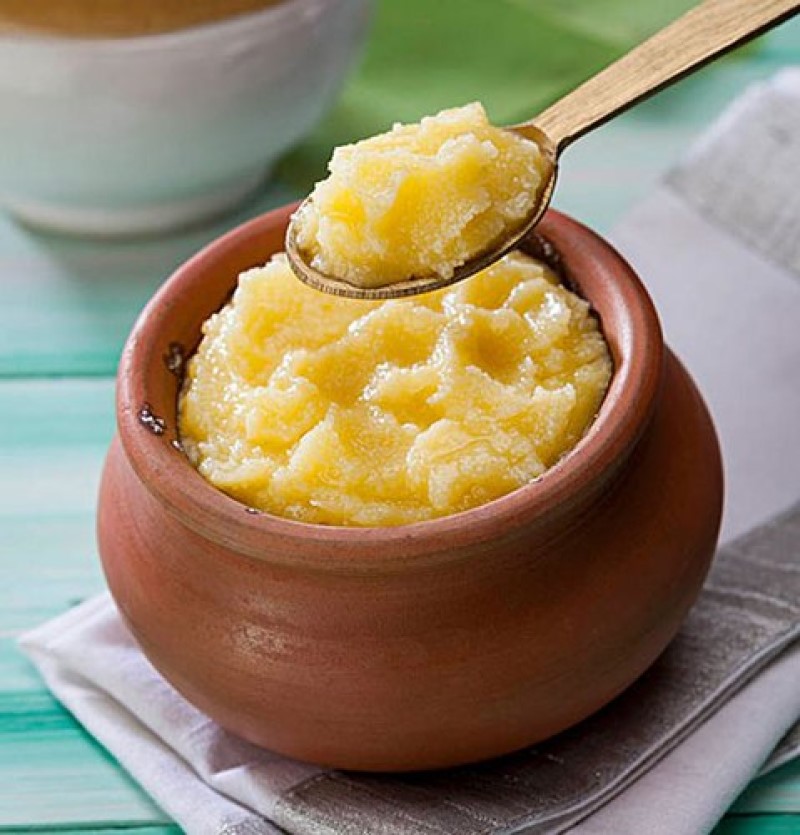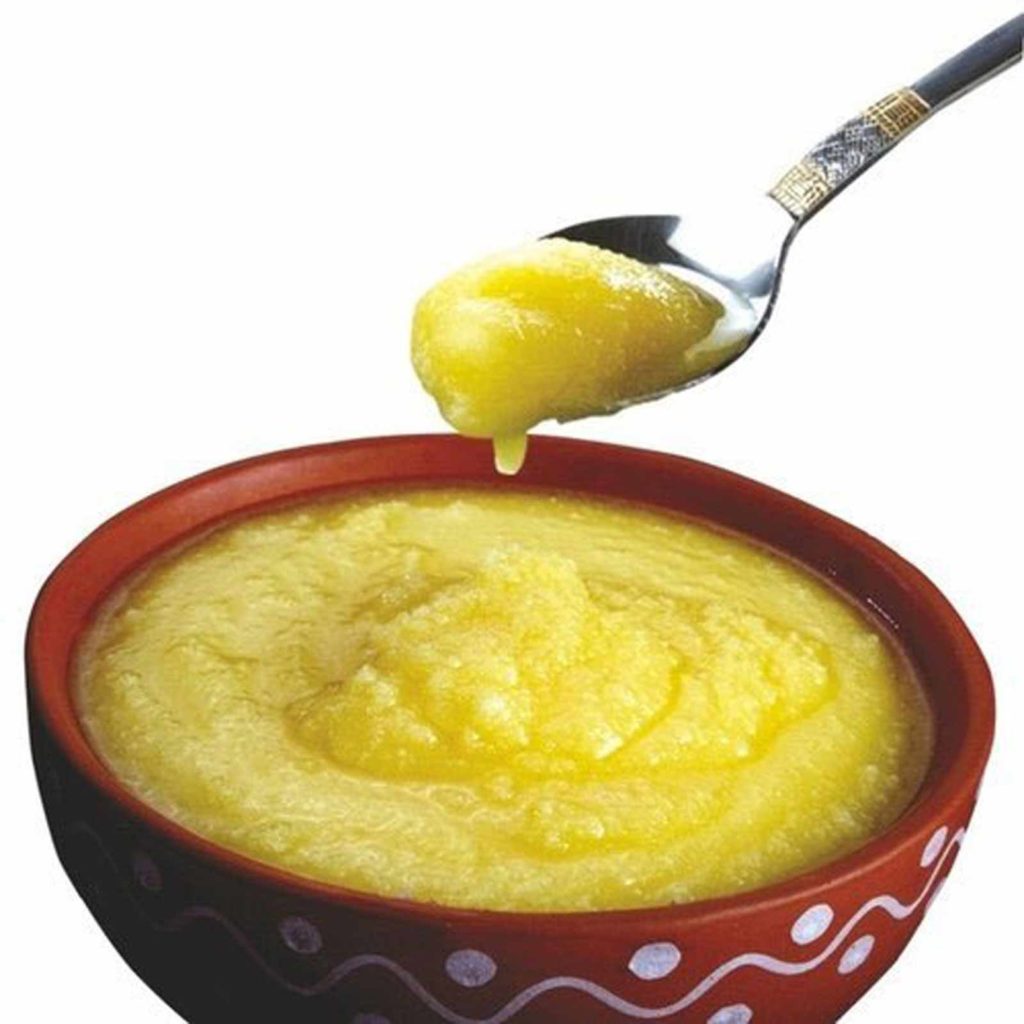Shudh desi cow ghee is the gold mine of nutrients and it possesses amazing therapeutic properties. Ghee is the Best Indian Ayurvedic superfood.
Desi ghee is a powerhouse of Vitamin A, E, D, K, and conjugated linoleic acid, and a whole range of Antioxidants.
Ghee is rich in many important nutrients such as omega-3 & 6 fatty acids.
Nutritional Value of Desi Ghee
| Calories | Carbs | Protein | Fats |
| 45 Kcal | Nil. | Traces. | 5 gm |
Health Benefits of Pure Desi Ghee

- It promotes and aids digestion.
- It helps improves bone strength and density.
- It boosts and supports immunity.
- It is extremely rich in antioxidants.
- It is good for intestinal health and supports the absorption of nutrients from food.
- It helps boosts brain health and memory.
- It lubricates joints and the intestine.
- It keeps you warm in winters.
- It prevents and cures clogged noses.
- It is a very good source of fat and energy.
- It helps in decreasing the glycemic index of meals.
- It keeps constipation at bay.
- It helps to cope up with stress and reduces it.
- It is good for heart health.
- It improves eyesight and removes dark circles.
- It nourishes skin and hair.
- It aids in weight loss and boosts metabolism.
- It helps in the overall nourishment of the whole body.
How ghee supports hormonal balance?
Ghee is a Great Source of Vitamin E, D, K2, and A, which are important for the production of hormones. Thus, they help in maintaining the balance of the hormones in the body.
Good fats are building blocks of all hormones – and are especially helpful with stabilizing the production of the stress hormone cortisol. Eat ghee from grass-fed cows to keep cortisol low.
How much desi ghee in a day ?
- Minimum: 1-3 tsp (5 to 15 grams) on a daily basis.
- Best to use as topping on roti, rice, dal, sabzi, saag, steamed veggies.
How to choose pure desi ghee ?
Cow type
Desi Indian cow-like Gir, Tharparkar, Red Sindhi, Rathi, etc are considered very good.
Jersey or Holstein on the other hand is considered average.
Method for making ghee
It can be made from churning curd or milk cream.
What is the cow feeding on?
Cows must be grass-fed and the best is if they are free-range.
Cows should not be kept in captivity and should be allowed to graze on lands freely.
Another diet should include ashwagandha, binole, etc.
Organic certificate
No preservatives, no fertilizers, or hormonal injections.
It should not contain any additives like vanaspati ghee, coconut oil, or palm oil.
Packaging of the ghee
Avoid plastic bags, tetra packs, plastic bottles.
It is best to buy glass bottles for increased shelf life and preserve nutrients.
Ayurvedic Properties of Desi Ghee

- Ghee is digestive.
- It helps to improve absorption and assimilation.
- It is good for improving memory and lubricates the connective tissue.
- Ghee makes the body flexible and, in small doses, is tridoshic.
- Ghee pacifies pitta and vata and is acceptable, in moderation, for Kapha.
Ghee is a nutritious superfood that provides a wide range of nutritional and physiological benefits. Consume it sparingly and allow it to nurture both your body and your soul.
